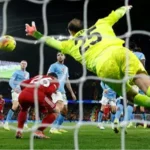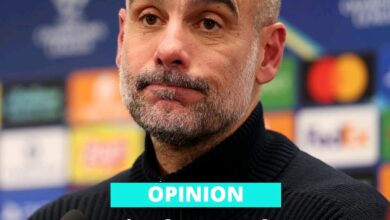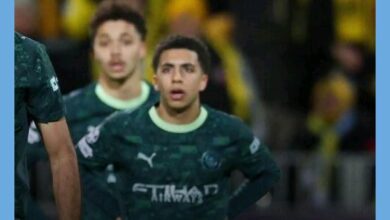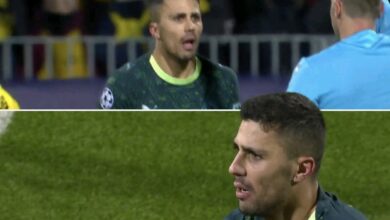Arsenal receive verdict on William Saliba red card against Bournemouth

Arsenal recently faced controversy regarding the red card issued to defender William Saliba during their match against Bournemouth. The incident has sparked debate among refereeing experts, highlighting differing opinions on the decision and its implications for the team.
During the match, which took place on October 21, 2024, Saliba was shown a red card in a situation that left many puzzled. Initially, referee Rob Jones issued a yellow card after Saliba committed a foul on Bournemouth striker Evanilson, who was not in a prime scoring position. However, following a VAR review prompted by the assistants at Stockley Park, the decision was changed to a red card. This marked a significant turning point in the game, as Arsenal was already down to 10 men for the third time this season.
The change in the card’s color left Arsenal players and fans frustrated. Saliba’s dismissal occurred in the second half of the match, during a period when Arsenal was struggling to maintain their composure. The match ended with a 2-0 defeat for Arsenal, with goals from Cyrus Christie and Justin Kluivert sealing the victory for Bournemouth. After the match, Arsenal manager Mikel Arteta expressed disappointment over another game where his team finished with fewer players and failed to earn points.
The red card decision drew the attention of PGMOL chief Howard Webb, who was present at the Vitality Stadium during the match. After the controversial call, he faced criticism from Arsenal supporters, who chanted angrily in response to the decision. The dissent highlighted the frustration surrounding officiating in crucial moments of the game.
Referee Dermot Gallagher, a former Premier League official, spoke on Sky Sports’ Ref Watch, asserting that Saliba’s red card was justified. Gallagher argued that Saliba’s foul put Evanilson in a position to potentially gain control of the ball. He noted that Arsenal’s goalkeeper, David Raya, had retreated from his original position, making it difficult for him to intervene effectively. Gallagher emphasized that the nature of the foul warranted the decision made by the VAR officials.
In contrast, former referee Mark Halsey expressed a differing view. Writing in The Sun, he argued that VAR’s involvement was unnecessary. Halsey pointed out that the distance between the foul and the goal, as well as the trajectory of the ball, made it less clear that a goal-scoring opportunity was denied. He believed that the context of the foul did not meet the threshold for a red card.
The controversy surrounding Saliba’s red card was amplified by a similar incident in the Chelsea vs. Liverpool match, where Chelsea defender Tosin Adarabioyo was not penalized for a comparable foul. Gallagher explained that the differences in the two situations lay in the direction of play and the positioning of defenders. These factors influenced the decisions made by the referees in each match, further complicating the debate over consistency in officiating.
Adding to the drama, Gallagher supported the penalty awarded to Bournemouth during the match, which he believed was crucial in ending Arsenal’s hopes of a comeback. He acknowledged that while Raya attempted to play the ball, he ultimately missed, which warranted a yellow card under the “double jeopardy” rule. This rule states that a player cannot be penalized with both a penalty and a red card for the same incident, adding another layer of complexity to the refereeing decisions made that day.
The impact of these officiating decisions has significant implications for Arsenal as they navigate a challenging season. With injuries and suspensions affecting their squad depth, maintaining a full lineup has become increasingly difficult. Arteta’s team is now looking to regroup and focus on upcoming matches, including their next challenge against Shakhtar Donetsk.
As Arsenal fans continue to discuss the match and the controversial decisions, the focus will inevitably shift to how the team adapts in the wake of these challenges. With the transfer window approaching, speculation about potential signings to bolster the squad has begun. The team is reportedly eyeing a £50 million striker to strengthen their forward options, which have been under scrutiny due to inconsistent performances.
In the meantime, discussions around the officiating in the Premier League will persist. The contrasting opinions among referees on Saliba’s red card reflect ongoing debates about the use of VAR and the criteria for issuing cards in high-stakes situations. Fans and analysts alike will be watching closely as Arsenal attempts to move past this setback and focus on their performance in the league and beyond.
The events surrounding Saliba’s red card and the subsequent reactions highlight the complexities of football officiating. As the season progresses, teams will continue to face challenges both on and off the pitch, making every match crucial for their aspirations. For Arsenal, finding a way to navigate these challenges will be key to their success in the remainder of the season.















